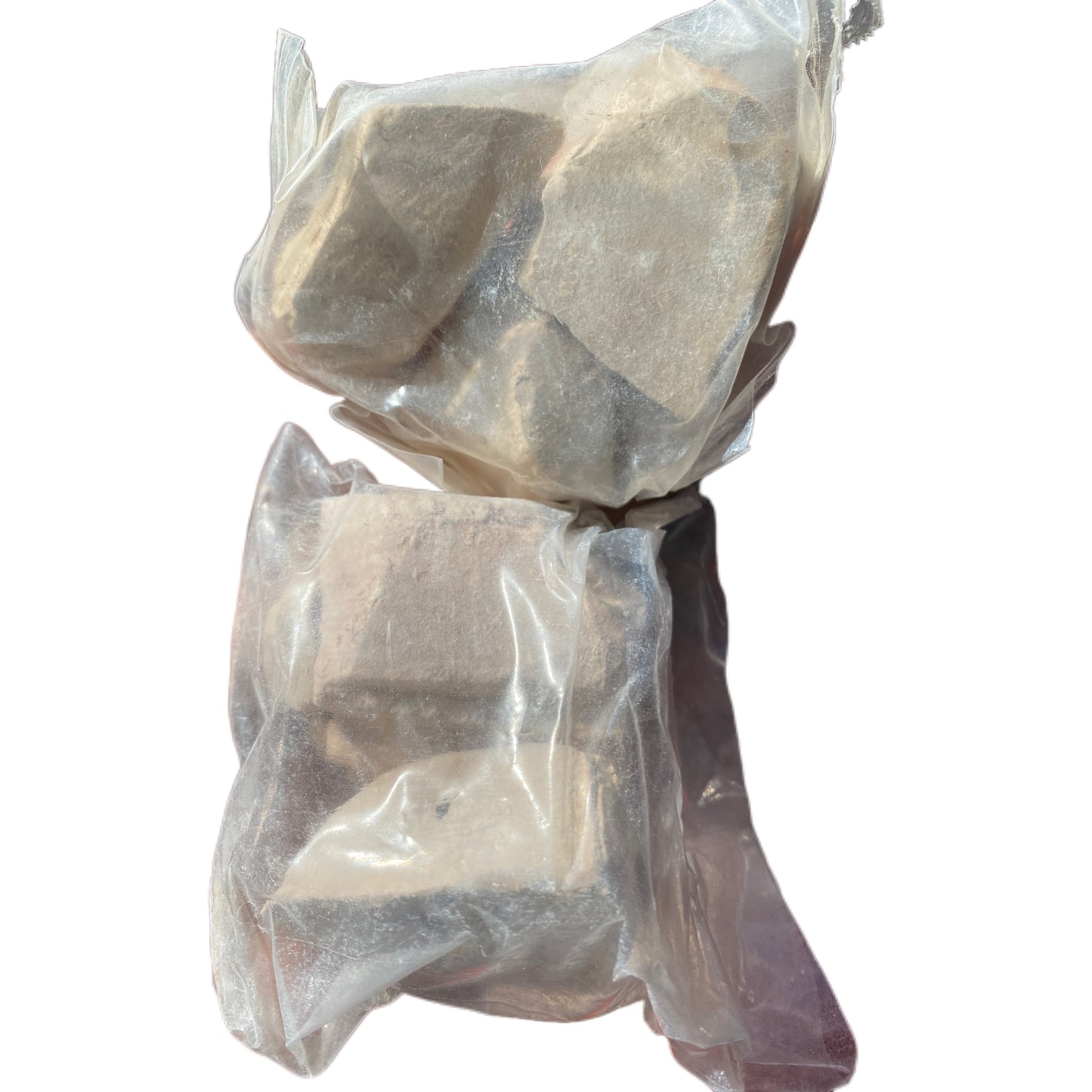Description
Calaba chalk, also known as Eko or African kaolin, is a type of edible clay commonly found in parts of West Africa. It's typically used for its supposed health benefits and as a traditional remedy. The clay is usually dug from the ground, cleaned, and sometimes shaped into sticks or blocks before being dried and sold.
Key aspects of Calaba chalk (Eko):
1. Edible Clay: Calaba chalk is consumed by some people, particularly in West Africa, as part of a practice called geophagy—the eating of earth or soil-like substances. People might chew on small pieces of the clay or dissolve it in water.
2. Health Beliefs: Many believe that Calaba chalk has medicinal properties. It's traditionally used to help with digestive issues, detoxify the body, and alleviate nausea, particularly during pregnancy (similar to cravings for clay or dirt known as pica ).
3. Texture and Taste: The chalk is usually soft and has a smooth, earthy texture. The taste can be somewhat bland or slightly bitter, with a characteristic earthy flavor.
4. Cultural Significance: The practice of eating clay like Calaba chalk is often deeply rooted in cultural traditions and practices in certain regions, and it has been a subject of study in anthropology and health sciences.
Additional Information
Reviews
My Wishlist
Wishlist is empty.
Compare
Shopping cart





